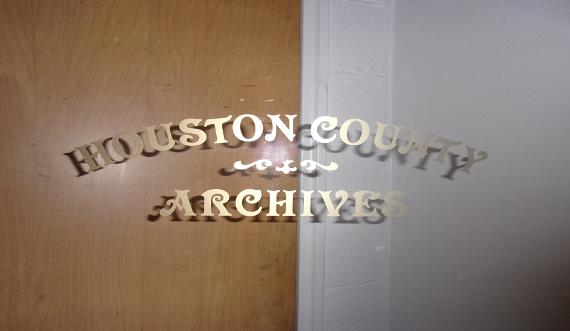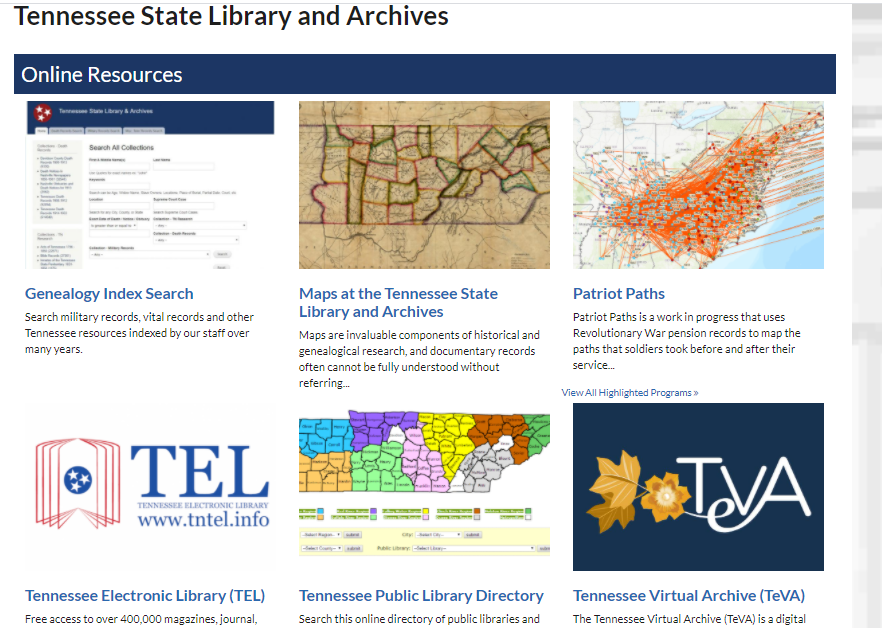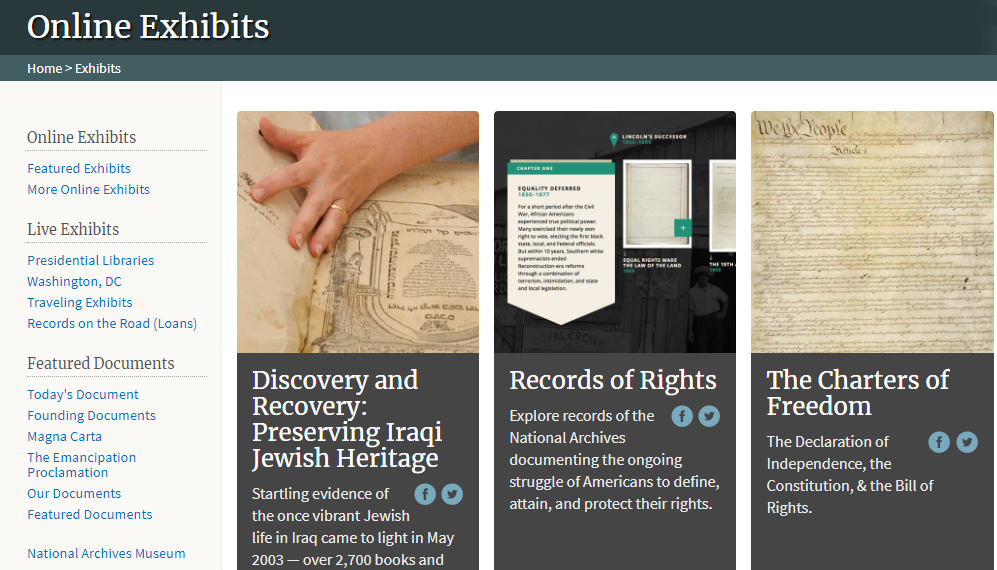Are there records you aren’t finding because you don’t know they exist? We know that not all genealogy records are online, but they are being digitized and added to websites daily. Digging deeper into state archives websites to find your ancestor’s records just might be the next step in your genealogy research.
What is an Archive?
Understanding exactly what an archive is and the different kinds of archives is essential.
An archive is defined by the Society of American Archivists as: An organization that collects the records of individuals, families, or other organizations (http://www2.archivists.org/glossary/terms).
There could be one or more of these types of archives in any area where your ancestors lived:
- County or local archives collects and preserves local government records and historical records
- State archives collects and preserves government records and historical records from across the state
- An historical society that collects and preserves local records is also considered an archive.
- A genealogical society that accepts donations of family records is an archive.
- A museum that has exhibits and displays may also have records collections and would be considered an archive. Don’t forget the museums!
- Local public libraries that have genealogy rooms with records in them are archives.
- University & Colleges with on campus libraries and archives is a great archive resource.
- Religious denomination archives collect and preserves church records of all kinds within their specific denomination.
The term “archive” is not solely used to represent a county or state archive; any organization that accepts, collects and preserves government, historical and genealogical documents, records, memorabilia and artifacts is considered an archive, even if they don’t have the word “archive” in their title.

Where Do I Start?
Knowing where to find the records and how to find the records is the first step in digging deeper into archives. It’s always best to start at the local level and glean all you can from these archives:
- Try to narrow down the area where your ancestors lived to the specific county (parish) and the specific city within that county (parish)
- Find out what archives are in that specific area, where is the facility and obtain contact information.
- Talk to the archivists, librarians, clerks, county historians and educate yourself about what records are available and where the records are physically located
- Locate and bookmark the websites of each local archive.
Going to the Next Level
If the records you are looking for are not at the local level, they may be at the state level. All 50 states in the United States have a state archive and all of them have a building you can visit. Best of all, every state archive has a website. If you are not able to travel to the state archives to do research in-person, their website just might be the next best thing.

Locate the website of the state archive for the state where your ancestors lived. Doing a simple Google search should bring up the state archive website. Once you are at the website, explore and investigate the entire page. Getting yourself familiar with the website itself and how it is arranged will help you when trying to locate specific record sources.
You will also see that you may have to dig and click on everything to find what you are looking for or to find the hidden sources on a state archive website. Some specific pages or sections that you should be on the lookout for are ones that have page headings having to do with genealogy or history. The records and information you are looking for most likely is not going to be on the front page of the website. Take some time to really dig into the website and make notes about what you find and where things are located so you can return to those pages easily.
Online Sources
Many state archive websites have sections entitled Online Sources. This is where you will most likely find indexes, finding aids and information about the records collections the archives have at their facility. This section of the website could have multiple layers, so don’t be afraid to click through the pages to see everything that is available. This is where the researcher will find indexes they can search for their surnames.
Manuscript Collection finding aids can also be found in this section. The finding aid is a “road map” to any manuscript collection and will help you determine if there is something within the collection that is of interest to you and your genealogy research. You may also find indexes to the Vertical File Collections at the state archives. Many state archives also provide an index of the county records they have in their collections and this index could very well be on their website.

Online Exhibits and Displays
Many of our state archives have digitized their documents, photographs and artifacts and created online exhibits and displays for their visitors. Just like in-person exhibit and displays, this is a chance for the archives to show their patrons what they have in the back rooms of their facility. More and more archives are adding online exhibits and displays to their websites to attract researchers. These online exhibits and displays will have digitized documents, photographs, and artifacts on many different subjects. Some state archives will change out their online exhibits and displays periodically, so it is important to check back often.

Digital Archives
State archives are the epicenters of document collection and preservation for each state. More and more state archives are encouraging their institutions to digitize as many of their collections as they can so these records can be shared with the public. These digitized documents, photographs and ephemera can be found on the website for anyone and everyone to view.

State archive websites can be a true treasure trove for the genealogist. If you are not able to travel to the states where your ancestors lived to do research, digging into the state archive website might just be where you find that piece of information that tears down that brick wall.
ABOUT THE AUTHOR

Melissa Barker is a Certified Archives Manager and Public Historian currently working at the Houston County, Tennessee Archives. She lectures, teaches and writes about the genealogy research process, researching in archives and records preservation. She conducts virtual webinar presentations across the United States for genealogical and historical societies. She writes a popular blog entitled A Genealogist in the Archives and is a well-known genealogy Book Reviewer. She writes a bi-weekly advice column entitled The Archive Lady published at Genealogy Bargains. She writes history pieces for her local newspaper The Houston County Herald called From the Archives. She is a Professional Genealogist with an expertise in Tennessee records and she takes clients. She has been researching her own family history for the past 30 years.
